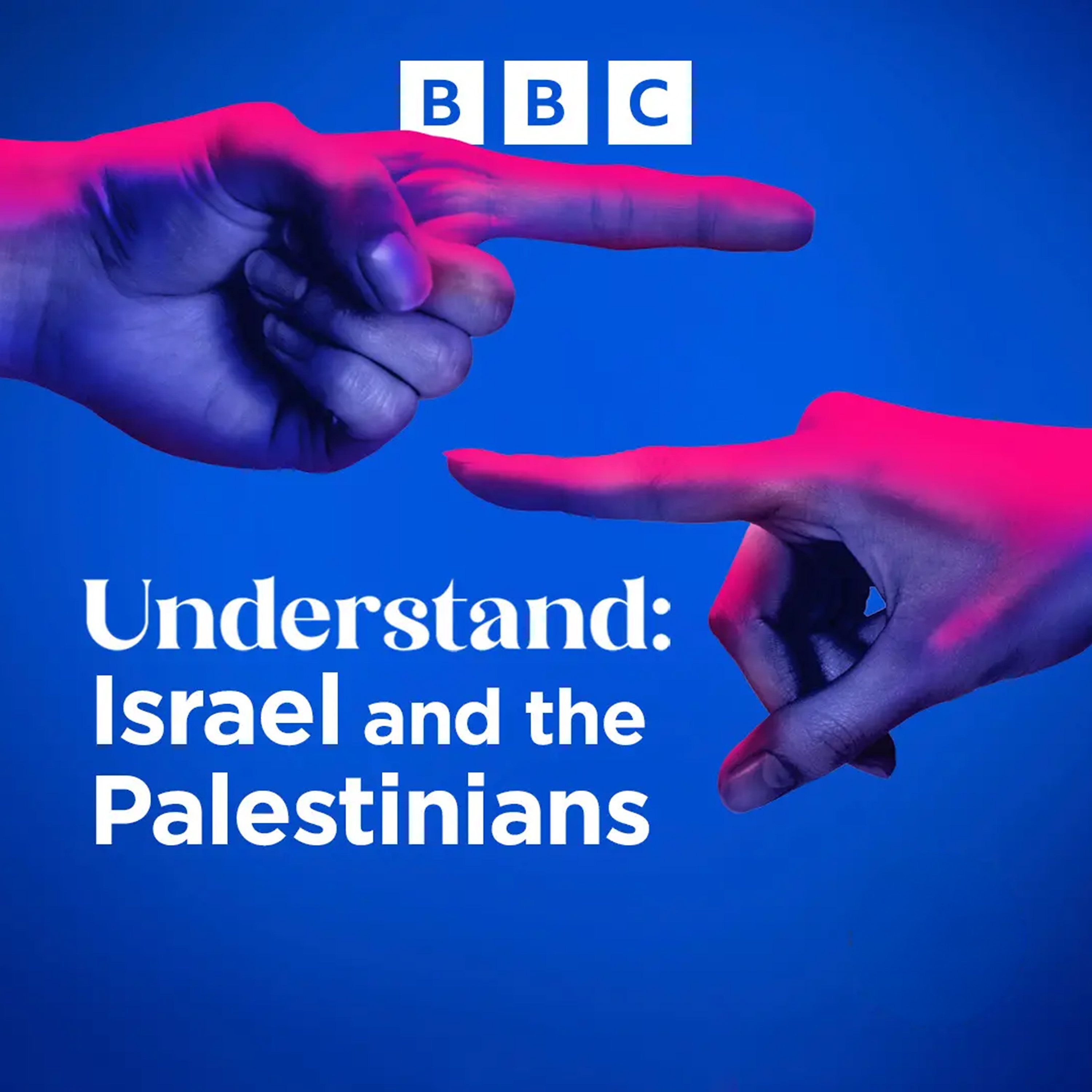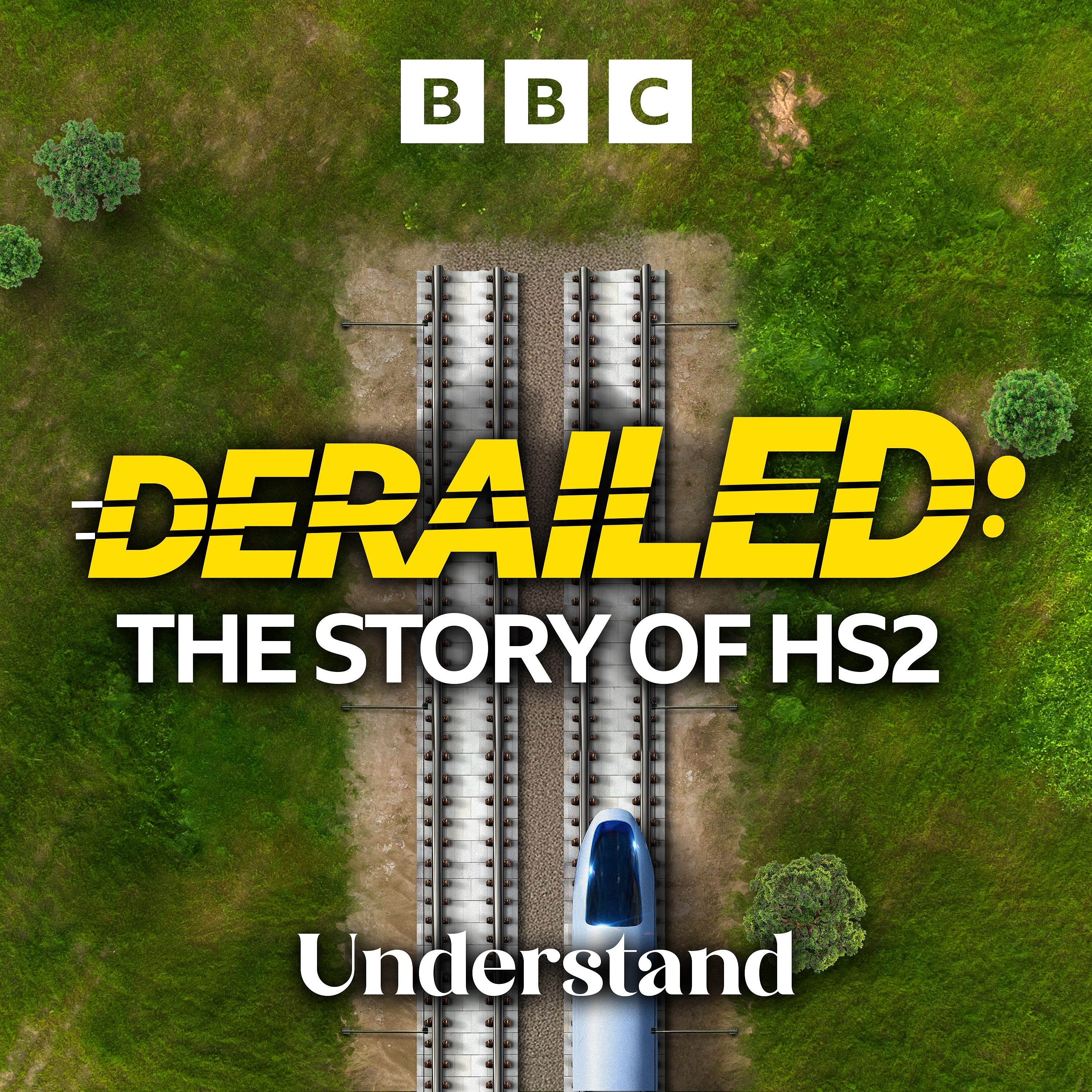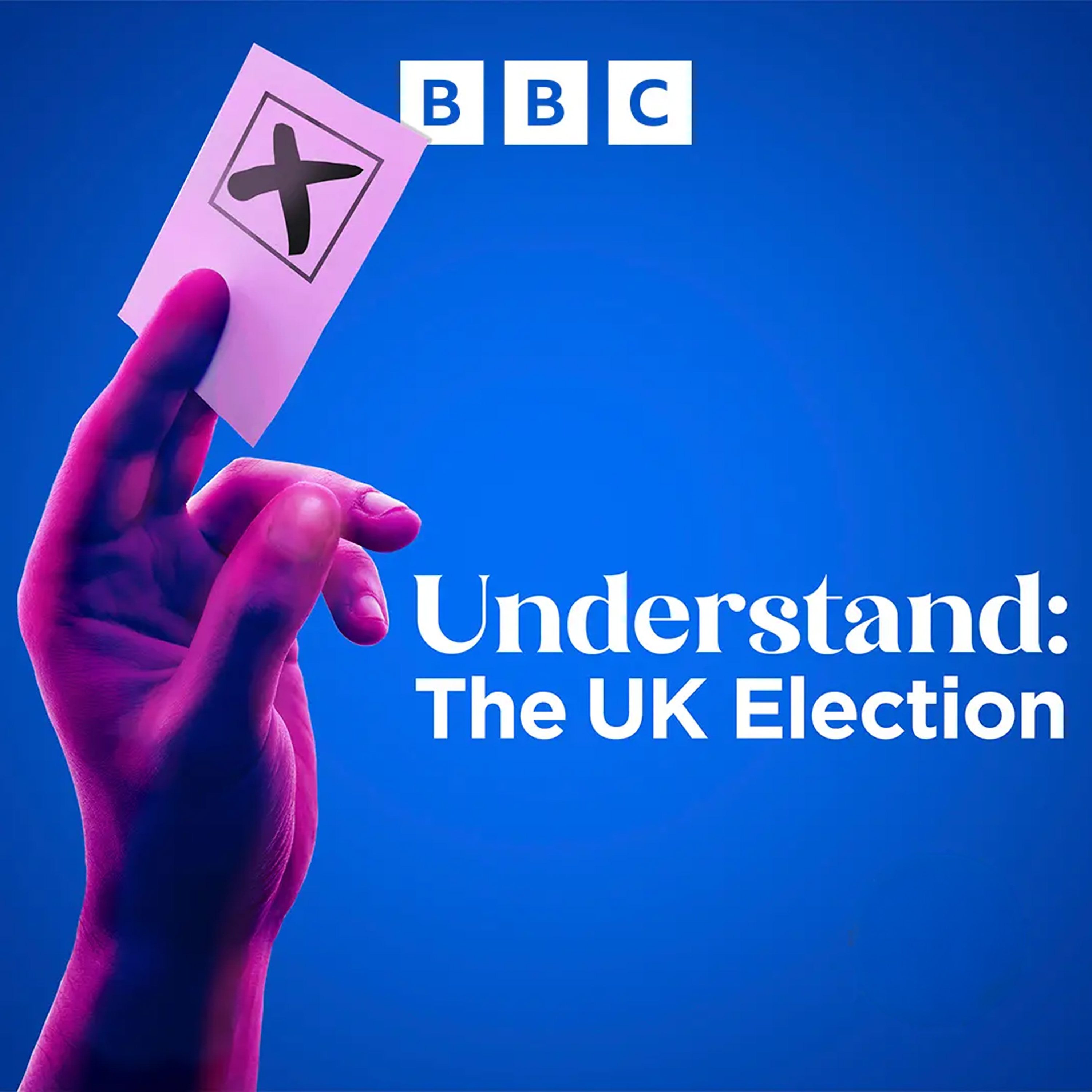Israel and the Palestinians: 1. The Palestinians
Katya Adler and guests explain the history and context of the decades long conflict between Israel and the Palestinians. In this episode we focus on life in the Palestinian territories of the Gaza strip and the West Bank and explore the history of how the state of Israel was created.
Press play and read along
Transcript
Speaker 1 This BBC podcast is supported by ads outside the UK.
Speaker 2 With the Wealth Front Cash Account, you can earn 4% annual percentage yield from partner banks on your cash until you're ready to invest.
Speaker 2 The cash account grows your money with no account maintenance fees and free instant withdrawals whenever you need it. Money works better here.
Speaker 2
Go to WealthFront.com to start saving and investing today. Cash account offered by Wealthfront Brokerage LLC member FINRA SIPC.
Wealthfront is not a bank.
Speaker 2 The APY on cash deposits as of December 27, 2024 is is representative, subject to change, and requires no minimum.
Speaker 2 Funds in the cash account are swept to partner banks where they earn the variable APY.
Speaker 3 Want to stop engine problems before they start? Pick up a can of C-Foam motor treatment. C-Foam helps engines start easier, run smoother, and last longer.
Speaker 3 Trusted by millions every day, C-Foam is safe and easy to use in any engine. Just pour it in your fuel tank.
Speaker 3 Make the proven choice with C-Foam.
Speaker 3 Available everywhere. Automotive products are sold.
Speaker 3 Seafoam!
Speaker 1 BBC Sounds, music, radio, podcasts.
Speaker 1 Welcome to Understand Israel and the Palestinians.
Speaker 1 Amongst the noise and the trauma of the conflict, we take a breath and a step back to provide context and a who's who guide to help you get to grips with the complexities of what's going on today.
Speaker 1 Throughout the series we'll take a detailed look at Israel, what Hamas stands for and the role of global players like the US and Iran in the region.
Speaker 1 In this episode we focus on the Palestinians, where and how they live.
Speaker 1 I'm Katya Adler and I was a Middle East correspondent for six years. My first child was born there and I've got friends and colleagues across the region.
Speaker 1 Viewpoints on the conflict between Israelis and Palestinians differ hugely and passionately. You can see that even from the way the creation of the State of Israel in 1948 is described.
Speaker 1 The Palestinians call it their nakbar, their disaster. You can't overstate the importance of this moment and we'll come back to it later.
Speaker 1
These days, Palestinians mainly live in two areas, the West Bank and East Jerusalem, and the Gaza Strip. The two areas aren't joined.
Israel is in between.
Speaker 1
And Israel has huge control over daily life for Palestinians, as we'll hear. Starting with Gaza.
My guest today is Kevin Connolly, former BBC Middle East correspondent.
Speaker 1
We've worked together a lot over the years. Hi, Kevin.
Hi, Katya. The first thing we need to do is set out some geography.
Speaker 1 So the Gaza Strip is about 25 miles long, roughly the length of a marathon, and around six miles wide, or 10K if you're a runner. But two million people live there.
Speaker 4 Once you are there, you are presented with this extraordinary teeming grid of city blocks with tower buildings, huge apartment blocks, an intense sense of overcrowding inside Gaza City itself, in every refugee camp where many Gazans still live.
Speaker 4 So the overwhelming sense you get as a visitor in Gaza is of overcrowding, of poverty, of refugee camps everywhere, of people who have been displaced and, in their view, remain displaced by historical circumstances.
Speaker 5 Yeah, it's described as one of the most overcrowded places in the world. Can you describe that sense of being stuck for Gazans?
Speaker 4 All movement is controlled either by Israel or through one gate by Egypt. Gaza sits between those two powers.
Speaker 4 Israeli attitude towards movement in and out of Gaza has varied a little bit over the years according to political circumstances.
Speaker 4 But the, again, overwhelming cultural sense around all of that is of restriction. Your life is under somebody else's control.
Speaker 4 Israel is the source of building materials, it's the source of food, it's the source of drugs and chemicals, it's the source of a lot of clean water, it's the source of energy.
Speaker 4 All of those things can be switched off very, very quickly in response to changing political circumstances.
Speaker 4 So, what a lot of Palestinians resent is that sense that their life is under Israeli control and it controls every aspect of their being.
Speaker 1
Of course, Israel says that it imposes such restrictions on Gaza for Bitachon. You hear that word a lot in Israel.
Security is the word.
Speaker 1 Security against the rocket attacks that they suffer from the Gaza Strip and the suicide bombings that have been carried out by Palestinian militants inside Israel.
Speaker 4 I think that's right.
Speaker 4 And a lot of people in Israel, especially on the right of Israeli politics, will say the scale and intensity of this latest Hamas attack shows you what would happen if there were not a secure border.
Speaker 4 I mean, the border wasn't as secure as many Israelis thought it was, but, you know, there would be a very easy argument to make in Israeli politics that this absolutely justifies those restrictions on Gaza.
Speaker 5 So complex, isn't it, Kevin? Even the use of the word border there as the separation between Israel and the Gaza Strip is contested. Briefly on Hamas, it calls itself the Islamic Resistance Movement.
Speaker 5 It runs the Gaza Strip and is labeled a terrorist organization by the UK, the US, and Israel. We will have a program unpacking the movement later in the series.
Speaker 5 And on Gaza, if we look at those poverty rates, I mean, according to the UN, over 80% with unemployment hovering around the 50% mark and such a young population, isn't it? And that has an impact too.
Speaker 4 Yeah, of course.
Speaker 4 and you know again one of those overwhelming perceptions that hits you every time you go there is that you are entirely surrounded by an extraordinarily youthful population which is continuing to grow the problem in gaza is you're creating an educated population that still has nothing to do and nowhere to go and that is building another source of resentment in the slightly longer term.
Speaker 1 Well, let's move on to the West Bank and its name to to start with Kevin it's like the West Bank of what? We're talking about Jordan here aren't we?
Speaker 4
Yeah it's the West Bank of the River Jordan. It sits between Jordan and Israel.
It's surrounded on three sides by Israel. It's larger than Gaza.
You know the quality of life there is better.
Speaker 4
It's less crowded. It has more of a functioning economy, more of a functioning agrarian economy.
But still, it has a deeply troubled relationship with Israel.
Speaker 4
Again, you have that sense of restriction. You can't fly into the West Bank.
You can't fly to the Palestinian territories.
Speaker 4
You have to fly to Israel's national airport in Tel Aviv, drive through Israel and go through Israeli control points to get in to the West Bank. Many tourists do it.
It's not impossible.
Speaker 4 Bethlehem is in the West Bank and many, many foreign tourists and pilgrims, of course, go to Bethlehem. But if you're a Palestinian, again, it's incredibly hard to get out.
Speaker 1 Yes, and hard to get around from Palestinian town to town or sometimes for Palestinians to access their own farmland.
Speaker 1 There are Israeli checkpoints and closures around the half a million Jewish settlers who've made their home now in the West Bank, and that's not including East Jerusalem.
Speaker 1 The settlements are considered illegal under international law, though Israel disputes this.
Speaker 4 Some of the settlements are really physically, they're just suburbs of Jerusalem, although it's been built in breach of international law.
Speaker 4 And some settlers are pushing out more and more into Palestinian territory. They're clashing with Palestinian olive farmers.
Speaker 4 And where those Jewish settlers go, the Israeli army feels it has to go to protect them. It's a huge wedge issue settlement.
Speaker 4 And from the Palestinian perspective, you know, it's enormously problematic and it's getting more and more problematic.
Speaker 1
Something we also have to talk about when discussing life in the West Bank. I think lots of people are familiar with the wall in Bethlehem that Israel's created.
Some call it a security barrier.
Speaker 1 That would be Israel. Palestinians call it a separation wall.
Speaker 4 Yeah, the barrier, I think, symbolizes more than anything else what day-to-day life is like in the Palestinian territories.
Speaker 4 Israel says, Look, without that barrier, they are victims of suicide bombers being sent from the Palestinian territories into Israeli towns and cities.
Speaker 4
The Palestinians say, Look, it's hugely restrictive. The wall has been put up in some places, like 30-foot-high blocks of concrete.
You know, it's just a few feet from somebody's back window.
Speaker 4 So, you know, the erection of that security barrier changed the quality of life for lots of Palestinians.
Speaker 1 Okay, let's have a look at some history now. We're joined by Eugene Rogan, professor of modern Middle Eastern history at Oxford University.
Speaker 1 Some go back to biblical times when they talk about rights over this land, but let's start with World War I and the British because that is really key.
Speaker 1 The British took over this area from the Ottomans. The vast majority of people living there then were Arab.
Speaker 1 More and more Jews were arriving, though, with the idea of it being a place of safety from persecution elsewhere.
Speaker 1 In 1917 the British signed the Balfour Declaration and that set in motion quite a change.
Speaker 6 Well the Balfour Declaration more than any government decision was responsible for setting in motion the creation of the State of Israel.
Speaker 6 Basically, until 1917, you would have described Zionism as a really unlikely nationalism just because the people involved were scattered around the world.
Speaker 6 But suddenly, with British commitment to help create a Jewish national home, the Zionist movement took on a kind of reality that it had never known before.
Speaker 6 But for the British, it was a balancing act between helping to create a Jewish national home without harming the interests of the non-Jewish population of Palestine.
Speaker 6 It was a formula they came up with, but it's setting forward a very fatal split that really creates the Israeli-Palestinian conflict down to the present day. That's the moment it starts.
Speaker 1
Yes, because as you say, and Palestinians say now, they felt that they got a promise as well. And anyway, they were in the land and couldn't just be ignored.
So what happened next?
Speaker 6 Well, in essence, Britain never really found a formula that could satisfy Palestinian aspirations for independence. And that led to a massive revolt.
Speaker 6 And so they put restrictions in place on Jewish immigration that would in turn give rise to a Jewish revolt.
Speaker 6 And with both the Jewish community and the Palestinian Arab community opposed opposed to Britain's mandate, it was untenable.
Speaker 6 And in 1947, Britain handed the Palestine dossier over to the new international organization, the United Nations.
Speaker 1 Of course, by then, Eugene, there'd been the Second World War, including the devastation that was the Holocaust and what that meant for the Jewish people.
Speaker 1 And that had an impact, too, didn't it, on the future of what had been British mandate Palestine.
Speaker 6 I think that the mission of creating Israel as a safe haven haven for the world's Jews after the experience of the most devastating mass murder in human history gave an entirely different imperative or an entirely different drive to the Jewish resistance to the British position in Palestine.
Speaker 1 So after the UN stepped in, what did they say?
Speaker 6 The UN came to the conclusion that the only solution to Palestine was to divide the territory into a Jewish and an Arab state.
Speaker 6 With the passage of that partition resolution, you had the beginning of a civil war in Palestine between the Arab and the Jewish communities that was to go right up until the withdrawal of the British in mid-May 1948.
Speaker 1 And it became a wider conflict, didn't it?
Speaker 6 Well, I think the broader Arab world recognized how ill-prepared they were to cope with a crisis.
Speaker 6 Most of these countries, Syria, Egypt, Lebanon, Jordan, were only just gaining their own independence and none of them was really prepared to take on a total war.
Speaker 6 They had hoped that the Zionist militias would prove, you know, no real threat. And I think the course of the Palestine Civil War showed them just how dangerous the Jewish militias were.
Speaker 6 And so they sent their armies in to intervene on the 15th of May 1948, which sets off the first Arab-Israeli war.
Speaker 6 Israel found itself at war with all of its neighboring Arab states, a war that would rage until armistice agreements were signed early in 1949. By that point, Israel was in control of 78%
Speaker 6 of the territory of the Palestine Mandate, leaving basically the West Bank, East Jerusalem, and the Gaza Strip still in Arab hands.
Speaker 1
Thanks, Eugene Rogan. Kevin Connolly, the Palestinian perception of the state of Israel is fundamentally shaped by those events of 1947 and 48.
They call it the Nakba, their disaster or catastrophe.
Speaker 4 The conflict which happens around the birth of the modern state of Israel.
Speaker 4 Hundreds of thousands of Palestinians find themselves on the move, either fleeing, fighting or being expelled from their homes. Maybe 700,000 people in total.
Speaker 4 Many, many, many of those refugees end up in Gaza.
Speaker 4 Politically, the sense you get is of a very, very deep resentment of the circumstances that led to them leaving their family homes and family lands all those years ago.
Speaker 4 They regard that aspect of history as unfinished business. Many of them don't consider the state of Israel to be a legitimate political entity because of the circumstances in which it was created.
Speaker 1 Kevin, thank you, and thank you for listening to Understand Israel and the Palestinians. In our next episode, we look at the events that shaped modern Israel.
Speaker 7 This is Bethany Frankl from Just Be with Bethany Frankl. Here's my summer tip: don't overthink your dogs' meals.
Speaker 7 My pups love Just Fresh from Just Food for Dogs, complete, balanced, fresh, shelf-stable meals that go everywhere from New York City to weekends in the Hamptons.
Speaker 7
I mean, you can have real food ready to go for your pup anywhere. No cooler, no hassle, just grab and go.
I've seen the difference. Healthier coats, more energy, tails wagging at mealtime.
Speaker 7
Biggie and smalls love it, and I'm all about stuff that just makes sense when life is busy. Go to justfoodfordogs.com and get 50% off your first order right now.
No code needed.
Speaker 3 Want to stop engine problems before they start? Pick up a can of C-Foam Motor Treatment. C-Foam helps engines start easier, run smoother, and last longer.
Speaker 3 Trusted by millions every day, C-Foam is safe and easy to use in any engine. Just pour it in your fuel tank.
Speaker 3 Make the proven choice with C-Foam.
Speaker 3 Available everywhere. Automotive products are sold.
Speaker 1 Safe home.


